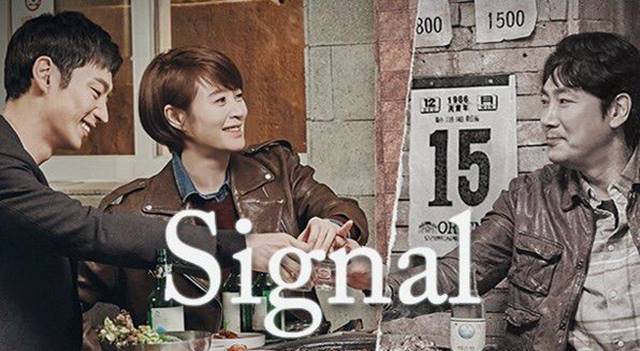
By Jae-Ha Kim
Substack
October 16, 2019
![]()
Park Hae-Young (played by Lee Je-Hoon)
Cha Soo-Hyun (played by Kim Hye-Soo)
Lee Jae-Han (played by Choi Jin-Woong)
↑Note: Korean names denote the surname followed by the given name.
Hae-Young is a police profiler in his mid-20s. He has the type of know-it-all personality that rubs his older colleagues the wrong way. Jae-Han is a mid-30s detective who was passed over for promotions, because he was unwilling to play the political game of kissing up to his superiors.
One day, Hae-Young finds a decades-old walkie talkie. The person on the other end identifies himself as Jae-Han. Before he can figure out what’s going on, the audio cuts out. He tries to get it repaired, but is told that the outdated device has no battery in it.
Dun dun dun!!
So begins “Signal,” which tells the story of two police officers who are living in different decades, who are able to communicate with each other sporadically at precisely 11:23 p.m.
I started watching this series earlier this month, after the real-life killer responsible for the Hwaseong serial murders confessed. He committed his crimes between 1986 and 1991 — and when “Signal” originally aired in 2016, the case had remained unsolved. The series incorporates that killing spree, along with the real-life collapse of the Seongsu Bridge in 1994.
“Signal” does a formidable job of balancing edge-of-your-seat subplots with thoughtful storytelling that follows through on strong character development.
The series makes you ponder the consequences of altering life. Is it fate for a person to die at a certain time, no matter how horrific that death might be? And knowing that saving someone’s life in the past could create catastrophic results in the future, would you still take that chance?
One recurring element in K-Dramas is for actors to play their younger selves in flashbacks. While that makes it easy for viewers to keep track of who’s who, it can also be humorous to see a 65-year-old man slap on a black wig to play the younger version of himself. Here, it’s obvious that Lee Je-Hoon doesn’t look like a 16-year-old high school student. Kim Hye-Soo doesn’t look like a 22-year-old rookie. And Choi Jin-Woong looks just as old in his police academy days as he does as a detective.
But the three lead actors are so skillful that it’s easy to overlook the physical characteristics. Their mannerisms are appropriate for whatever decade their characters are living in and they get the emotional age progression just right.
As Soo-Hyun — the first female police officer in the department — Kim Hye-Soo plays the character who shows the most growth. She goes from being the insecure token woman to the woman in charge of a group of male officers. The series shows the innate sexism at play. As the lone woman, she volunteers to become the de facto coffeemaker, not because anyone tells her to, but because that’s what society expects from women. Jae-Han won me over when he yelled at her each time she did so, telling her that’s not her job — she’s a police officer, not a waitress!
There are many strong storylines, but one of the most compelling involved a serial killer (played so well by Lee Sang-Yeob), who had endured so much childhood abuse by his mentally-ill mother that he believed he was putting women out of their misery by strangling them. I had feared the scriptwriters would try to excuse his heinous crimes, but they didn’t. They presented a sick man who killed innocent women.
The finale left some viewers disappointed that it wasn’t more clear cut. But I liked the open ending, because it left room for a followup season. Speaking of which, if all accounts are correct, the followup season — starring the primary trio of stars — will air in the first half of 2020.
Airdates: Cable network tvN aired 16 episodes — each running about 80-minutes long — from January 22 to March 12, 2016.
Spoiler Alert:
Hae-Young became a police officer because he needed power. When they were children, his older brother was wrongfully accused of masterminding a gang rape. The police, who were in the pockets of the rich students’ parents, set him up as the perfect patsy — a teenager with no connections or money. Who would believe him against the words of all the rich boys? Hae-Young’s hope is that Jae-Han can help him prove his brother’s innocence and prevent him from committing suicide. Beautifully played by Kang Chan-Hee (“SKY Castle“), the boy actually hadn’t killed himself. A corrupt police officer drugged him and slit his wrists to prevent him from incriminating the real rapists.
As for why each of Jae-Han’s calls to Hae-Young are at 11:23 p.m., that’s the exact time of his death. But through their interactions, Hae-Young is able to warn him of his impending death and saves him.
© 2019 JAE-HA KIM | All Rights Reserved
2 thoughts on ““Signal” (시그널)”